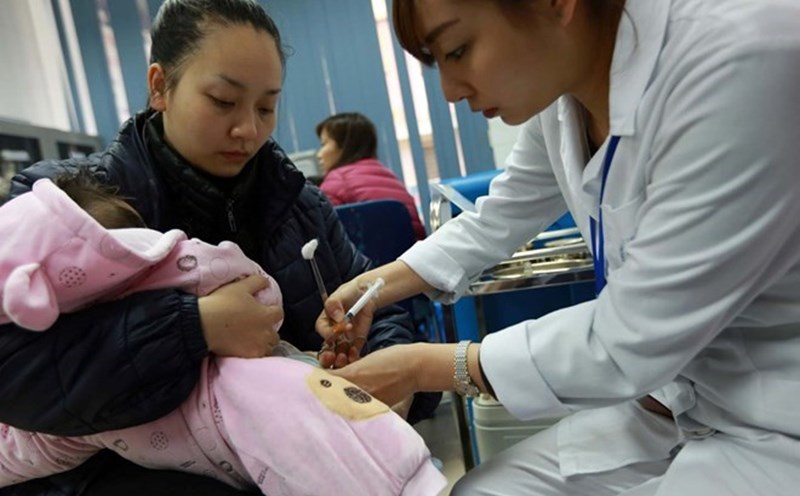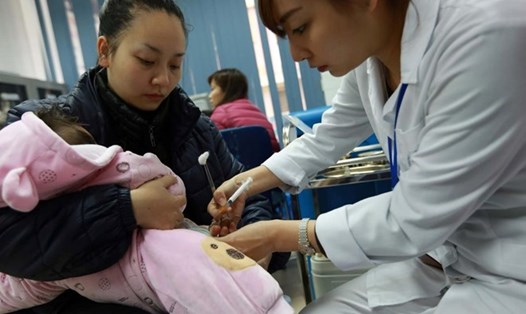Doctors at the National Children's Hospital received and treated a 4-year-old girl, the third child in a family of three children in Hanoi, who was taken to the emergency room in a state of difficulty breathing and cyanosis. Through examination and testing, doctors determined that the child had severe complications of measles, severe lung damage leading to progressive acute respiratory failure syndrome, accompanied by severe inflammatory reactions throughout the body, liver, kidney failure and circulatory failure.
Immediately, doctors performed intensive resuscitation measures, blood filtration, and the use of the extracorporeal circulatory system (ECMO). However, due to the seriousness of the disease, the child did not survive.
When studying the vaccination history, doctors discovered: For 4 years, the baby was only vaccinated with one dose of neonatal hepatitis B vaccine and one BCG vaccine. Essential vaccines, including the measles vaccine, have not been vaccinated. The remaining children in the family are in a similar situation. Doctors suspect that the family is in the group of hesitant or opposing vaccination.
When doubting vaccines becomes a public health hazard
According to the World Health Organization (WHO), vaccine attendance is a state of hesitation or refusal to vaccinate even though vaccines are available. This is considered one of the top 10 threats to global health.
The causes of this hesitation are very diverse: From lack of knowledge, fear of side effects, to the subjective mentality that the disease has "extinct", or being affected by false information on social networks. The blind belief in "natural resistance" or religious and cultural reasons also contributes to strengthening this attitude.
As a result, un vaccinated children are at high risk of disease, easily becoming seriously ill, and even dying. In the long term, the community will face the risk of an outbreak, medical overload and human losses.
If vaccination can still be changed by education, then opposing vaccination is a more extreme manifestation. thinging against vaccines is an indirect "fire" that causes the epidemic to return, even though it has been controlled.
Worrying situation and clear warning
The United Nations Children's Fund (UNICEF) noted that more than 67 million children worldwide have missed vaccination during the COVID-19 pandemic. In the US, vaccine exemption rates have nearly doubled in 15 years.
Facing "tests" of vaccine hesitation and fighting, drastic action is needed:
Communicate accurately, easily and humanely to help people understand the benefits and safety of vaccines.
Strengthen the role of medical staff, because they are the ones who have the greatest influence on vaccination decisions.
Control false information online, combine with digital platforms to limit the spread of fake news.
Mobilize the cooperation of the whole society, from family, school, media to health agencies.
No one has the right to let children suffer the consequences of the wrong choices of adults. twice-adsadshearing or opposing the vaccine is not just a personal opinion. It is a neglect of children's health protection rights, and a threat to the whole community.











